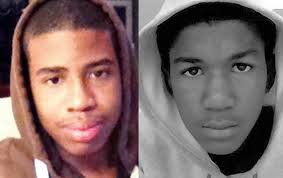Critical examination of race/ethnicity and justice issues in the U.S.
Saturday, July 27, 2013
Tuesday, July 23, 2013
The Re-n*ggerizing of the Black Professional Class
While giving an interview, Dr. Cornel West made an
interesting observation when discussing President Obama. He said that there is a “re-n*ggerizing” of
the Black professional class (about 27 minutes into the interview). In other words, the professional class of
Black folks refuse to say anything negative about the President or his criminal
agenda, in order to prevent the President from looking bad to others and “taming”
the anger toward the President among lower class Blacks. Through these actions (or lack thereof), true
progress and equality among Blacks are further worsened. Let’s explore this, in terms of “justice.”
The United States of America has a history of slavery, black
codes, and Jim Crow. The criminal
justice system was used as a method of social control to further oppress
Blacks. In other words, Blacks were more
likely to be arrested, jailed, denied due process rights, convicted,
incarcerated, etc. Several law
enforcement officers, attorneys, and judges were overtly racist, which further
perpetuated and deepened the distrust between Blacks and criminal justice
practitioners. If these problems are to
be adequately addressed, are we losing potential progress through the re-n*ggerizing
of the Black professional class?
Without discussing the truth (or not!) of Dr. West’s point,
let’s further examine the role of Blacks (regardless of social class) in
helping achieve justice in this country.
The “clients” and residents of the criminal justice system are
disproportionately poor and minority.
Once convicted, regardless of the sentence, they are now convicted
offenders. Depending on the offense, it
could eliminate the ability to receive financial aid for higher education. We have a public school system that is
systematically biased (e.g., school resources, funding, college prep classes,
etc.) against poor people. There is a
blocking of legitimate job opportunities in lower class communities. All of these issues increase the likelihood
of criminal behavior, and once convicted, the probability of committing
additional crime increases.
Unfortunately, when there is a disproportionate number of minorities living
in lower class areas, minorities (especially Blacks) suffer serious social
ills.
During all of the major movements in American history (e.g.,
Civil Rights Movement, Gay Rights Movement, Women’s movement, etc.), those who
participated focused on the human/natural rights of everyone. In other words, Whites were protesting with
Blacks to help fight legal segregation.
Heterosexuals were protesting with gays to help fight legal definitions
of marriage. Black professionals must
protest with lower class Blacks (along with other races/ethnicities!) to fight
a criminal justice system and criminal laws that have been deeply
discriminatory against Blacks since their beginning. How much longer must we deal with a system
that is openly racist! This is a
human/natural rights’ issue! If the
Black professional class is being re-n*ggerized (per Dr. West’s assessment),
the tragic shooting of Trayvon Martin should demonstrate that Black boys
(regardless of social class) are susceptible to negative outcomes because of
profiling and implicit/subtle racism.
Are the Black professionals being re-n*ggerized, in order to
shield Obama, resulting in further injustice among other Blacks (especially
those in lower social classes) in the criminal justice system? This is an interesting and very appropriate,
question.
Saturday, July 20, 2013
Race and Justice, in Light of George Zimmerman Verdict
While the George Zimmerman not-guilty verdict has been viewed by many as an injustice, we cannot lose site of the underlying issue: discrimination within the criminal justice system. While Trayvon Martin is one individual life, he has come to be the face and motivation for a movement that has impact far beyond this one case. The criminal justice system, both historically and currently, is systematically biased against males, the young, and African-Americans. The group most biased against, though, is the combination of those factors: young African-American males. This group is more likely to be sentenced harshly, along with being viewed as the most "dangerous" and "blameworthy" of any other group.
What accounts for this view of our Black males? Is it the disproportionate percentage of arrests by Blacks? Is it the depiction of Black males in the media (e.g., movies, music videos, news, etc.)? Is it the fairly large percentage of Blacks who are currently incarcerated in our nation's jails and prisons? Is it simply racism, which may be passed down generationally among non-Blacks? Is it the systematic bias against Blacks in our nation's schools, which leads to social ills? While there are many more questions to be asked, the answer most likely falls within all of these issues.
George Zimmerman did profile Trayvon Martin, but we should not forget that Zimmerman does not hold a view that is significantly different from other people or entities: criminal laws, the criminal justice system, employment opportunities, educational system, some non-Blacks, and even some Blacks themselves. It is in this venue that the movement in the aftermath of the verdict should be focused. Trayvon "fit" the description of those viewed most dangerously in the United States. There are many more Trayvon Martins in the United States, which transcends social class and neighborhoods. How will Black life continue to be viewed and portrayed? As long as there continues to be negative values attributed to African-Americans (especially the young males) and systematic discriminatory laws and practices, the current movement that has the face of Trayvon will be done in vain.
Subscribe to:
Posts (Atom)

